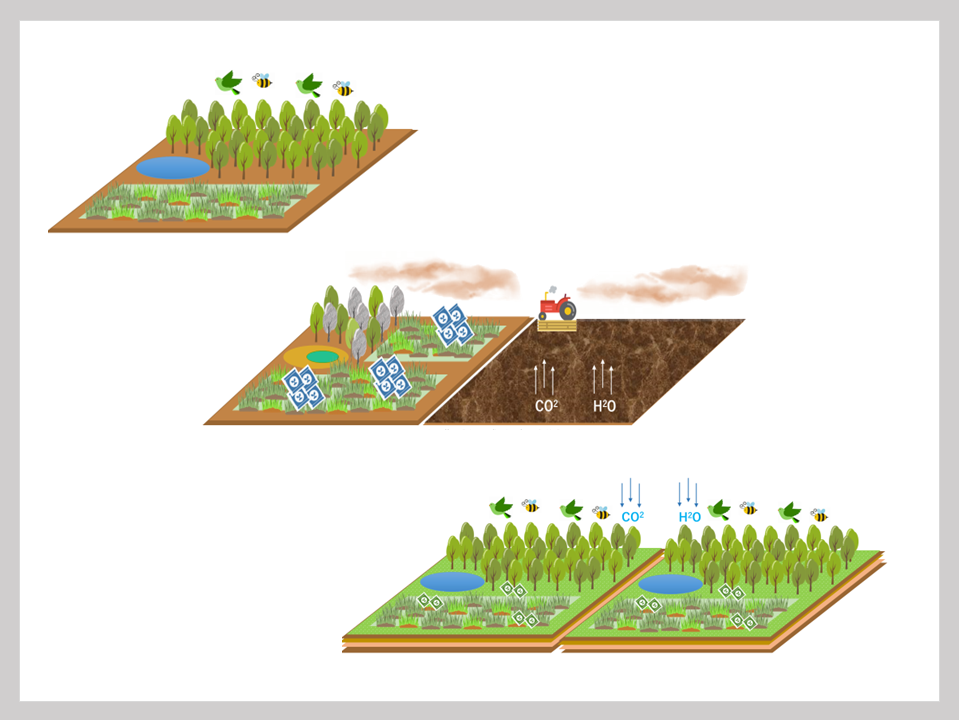Pick Up
747. Thinking About Regenerative Agriculture

747. Thinking About Regenerative Agriculture
In recent years, there has been a growing movement worldwide, led by the private sector and civil society, to promote regenerative ways of farming, such as regenerative agriculture and regenerative organic farming, as one way to transform food and agricultural systems.
According to an English dictionary, regenerative means to regenerate and revitalize what is broken. Indeed, the current agriculture and food system is one of the biggest causes of the most serious environmental crises of our time: climate change and biodiversity loss. Agriculture is essential to humanity, but the current agricultural system needs to be transformed.
On the other hand, agriculture is highly diverse, being defined by local agro-climatic and soil science conditions (seasonal and annual temperature and rainfall patterns defined by latitude and topography, chemical, physical, and biological conditions of the soil, etc.) and socioeconomic conditions (scale and organization of operations, availability of resources such as labor, capital, and knowledge, etc.), as well as the history and experience of soil and water management in rural communities. In the context of Japan, the following features come to mind.
- Asia-Monsoon: hot and humid, rice paddies, small farmers
- Land spreading from north to south: comparative advantage of diverse food products at different latitudes (temperatures, daylength)
The world's agricultural production situation is diverse, and its transformation is not an easy task, and there is no panacea that can solve all the world's situations. In addition, socioeconomic structures such as the world population and rural/urban population ratios are different 100 years ago, today, and in the future, and the role of agriculture in maintaining global food security will also change. Rather than simply winding back the hands of the clock, it will be necessary to incorporate technological and economic advances and to seek regenerative pathways that are adapted to the circumstances of each region of the world.
In this context, it is important that governments, civil society, the private sector, and farmers around the world think seriously about food system transformation, and that individuals change their awareness of food and agriculture, starting with what they can do on a day-to-day basis. To this end, raising awareness among producers, researchers, companies, and individuals about their connection to the world, nature, and society through the sharing of information about food can be the first step toward realizing food system transformation by encouraging individuals to implement sustainable eating habits.
The outdoor clothing and gear company Patagonia will host the first conference in Japan on the theme of "Regenerative Organic" to provide an opportunity to broaden and deepen the discussion in Japan about agriculture as a solution suited to the Japanese climate. JIRCAS will present a lecture titled "For the Future of the Earth and Food: The Food System and What Japan Can Do" that will provide an overview of the state of agriculture and the food system today. We hope you will join us.
Regenerative Organic Conference 2023 2
~Thinking together about agriculture as a solution~
Outline of the conference
■ Date : April 13 (Thu) 10:00〜16:00
■ Admission:Free ※ Registration required
■ Participation method:Online viewing
※ Available for a limited time only for those who have registered
■ Registration deadline:April 10 (Mon) 18:00
■ Organizer:Patagonia International, Inc. Japan Office
■ Sponsor:Dr. Bronner
■ Program details and registration page (external link)
https://www.patagoniaprovisions.jp/pages/ro-conference-2023
Contributor: IIYAMA Miyuki (Information Program)
